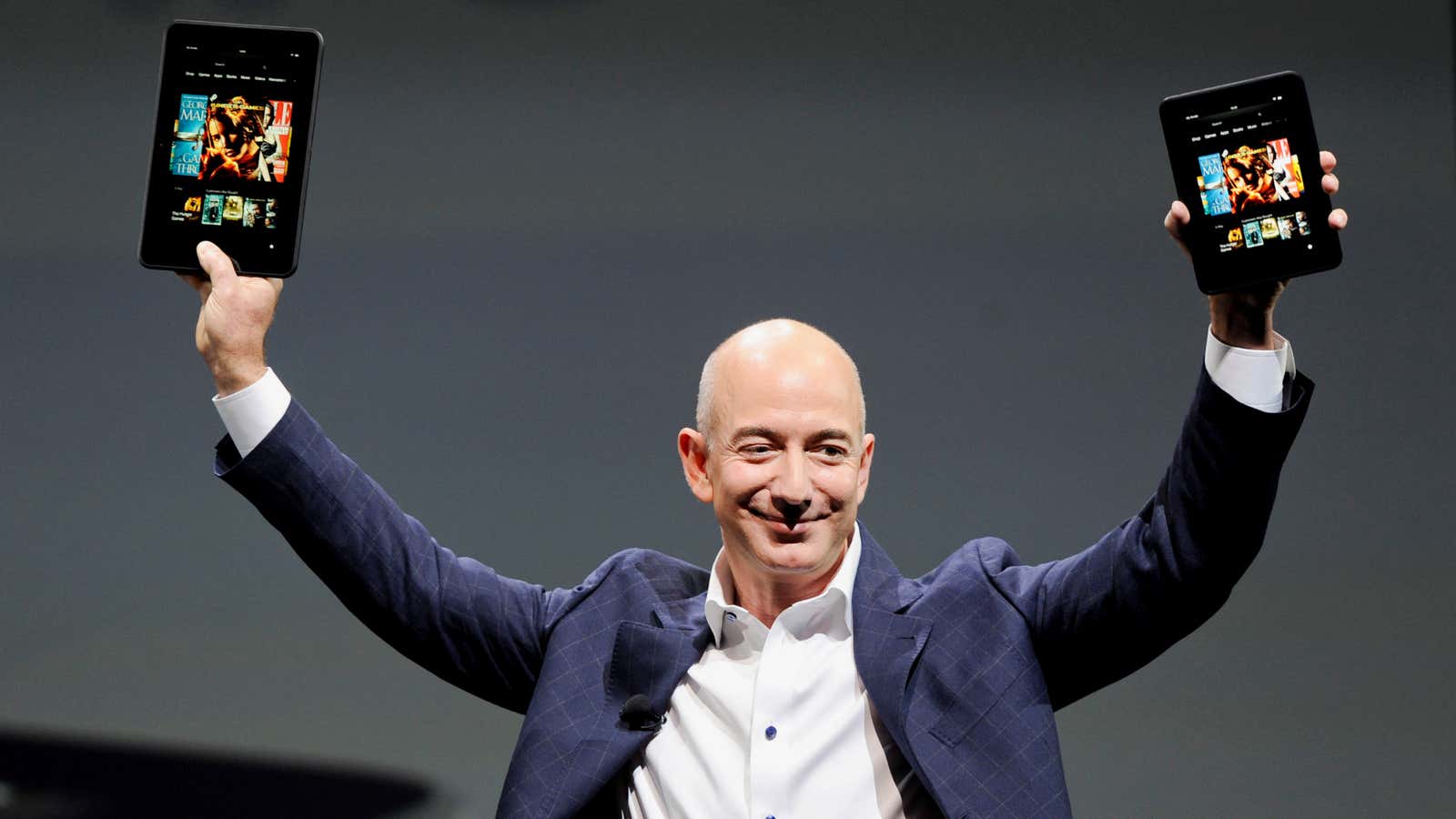In a major rebuke, a federal judge has ruled that Apple violated antitrust laws when it conspired with book publishers to raise the price of e-books. The 160-page opinion, delivered by US District Judge Denise Cote, finds that Apple “brilliantly played its hand” as the ringleader of an attempt to re-engineer the entire e-book industry.
Had Apple gotten away with it, the plan could have resulted in the rest of us paying significantly more for electronic literature. But the case was never really about Apple. To understand how and why this played out like it did, we need to start with Amazon. Here goes, in six bullet points:
- At the turn of the decade, Amazon was selling e-books for as low as $9.99 a pop—a fantastic deal for consumers, but not so much for publishers who were used to charging more.
- Amazon was actually losing money on e-book sales, but it didn’t care. The long-term goal was to get people to buy its Kindle e-readers.
- Publishers never expected Amazon to sell their books at a loss, but there was nothing they could do about it because of the way they’d set up their deal with the Internet company.
- The publishers worked with Amazon under what’s called a “wholesale” model, where bookmakers sell products to retailers for a certain, agreed-upon price but then relinquish price-setting authority at retail.
- With Amazon’s aggressive pricing, the publishers reasoned, the Internet company might grow so powerful it could drive down prices for all books, even the hardcovers sold in mom-and-pop stores. Amazon might even begin to negotiate directly with authors and cut out the publishing houses altogether.
- That’s when Apple arrived on the scene. Recognizing a chance to capitalize on publishers’ Amazon jitters, Apple proposed a new business model that would let publishers retain control over the retail price of their e-books. Apple would be the publishers’ agent, taking a 30-percent cut.
This new “agency” model let the publishers price their books at $12, $13, or $14 a pop, perhaps more. Some books saw their prices jump more than 50 percent, Judge Cote wrote in her opinion.
But Apple went even further. Selling e-books at $14 might be nice for the publishers but bad for Apple’s business if Amazon were still selling the same titles for $9.99. So Apple proposed what’s called a “most-favored nation” clause that made the new, higher prices conditional on there being no other retailers selling the same books for less. The clause forced publishers to set the price at whatever the lowest price on the market was—in this case, the same old $9.99 that, ahem, certain other companies were charging.
The publishers obviously weren’t happy about this, because it put a great deal of pressure on them to end their wholesale agreement with Amazon.
“As Apple made clear to the publishers,” Cote wrote, “‘There is no one outside of us that can do this for you.'”
You can see where this is going. Apple’s plan was not only to raise e-book prices overall; it was to break Amazon’s stranglehold over e-book pricing without getting its own hands dirty. In Apple’s own words, the idea was to “move the whole market off [of] $9.99” simply by getting the publishers to act in their financial interest.
Apple maintains that it was never engaged in a conspiracy.
“We’ve done nothing wrong, and we will appeal the decision,” the company said Wednesday in a statement.
It’s still unclear what the penalty will be for Apple; that’s be the subject of another legal proceeding to follow. But if Apple and the publishers were the losers in this debate, individual consumers won big. And so did Amazon, which still holds an estimated 60% of the e-book market, even though that’s down from 90% in 2009.
This originally appeared at National Journal. More from our sister site:
Wealthy Americans are angriest at the economy
Good news: Youth employment slows violence. Bad news: Youth unemployment is spiking
The IRS mistakenly exposed thousands of Social Security numbers
